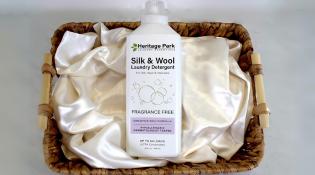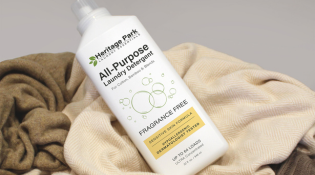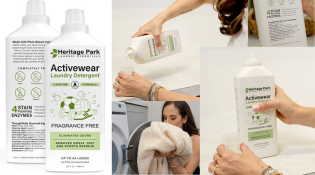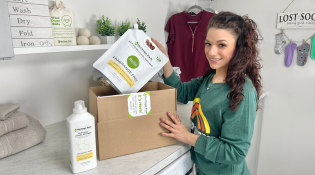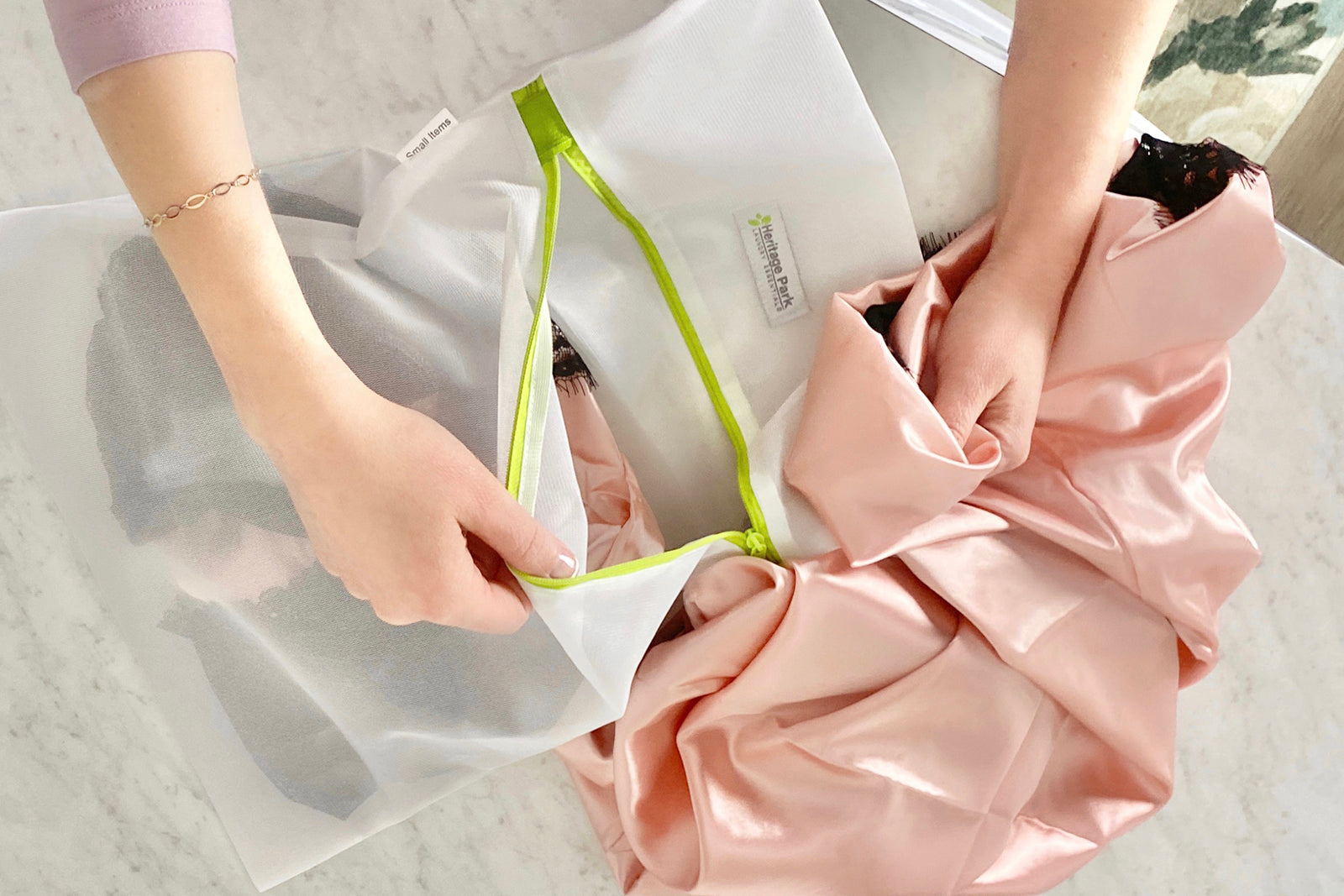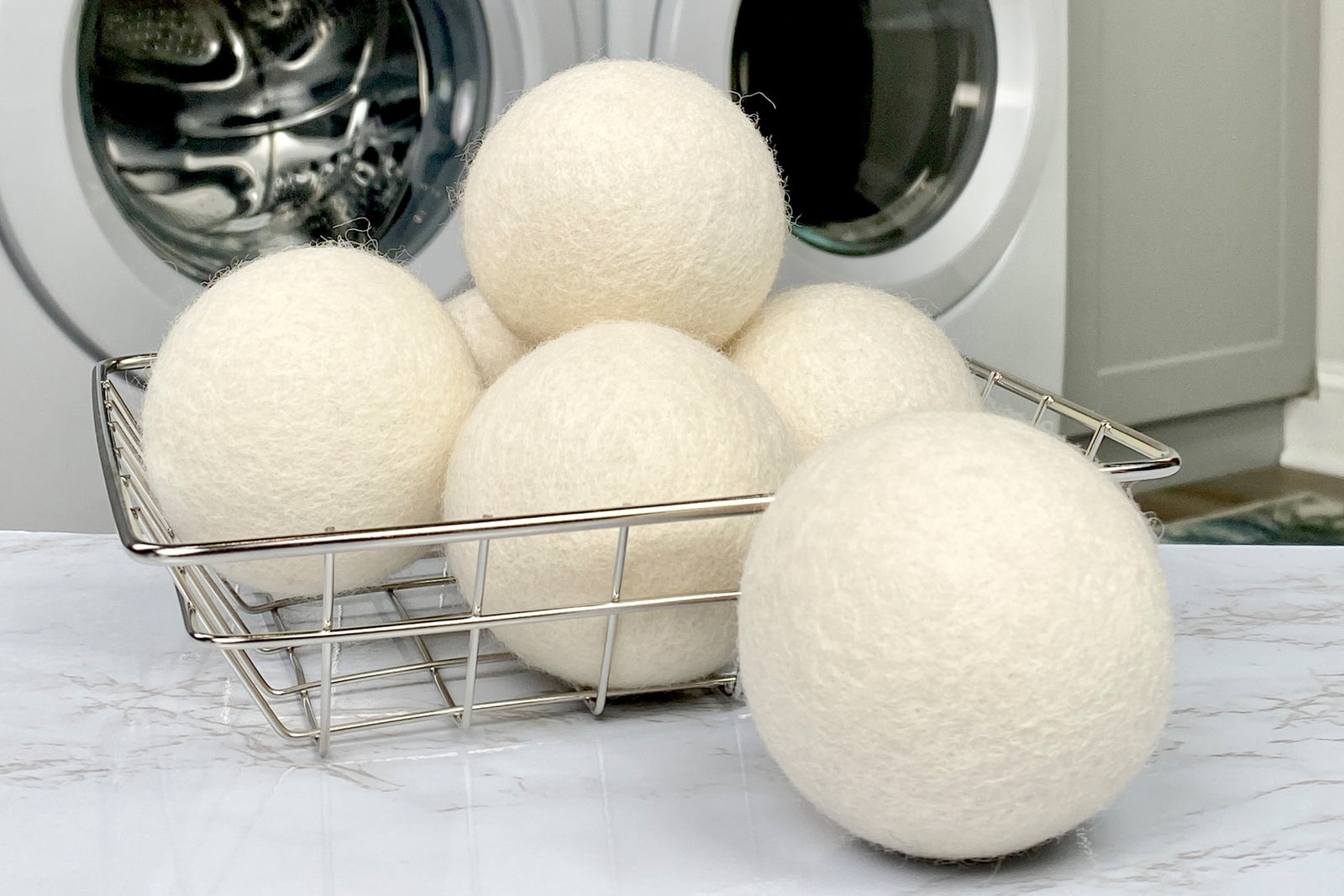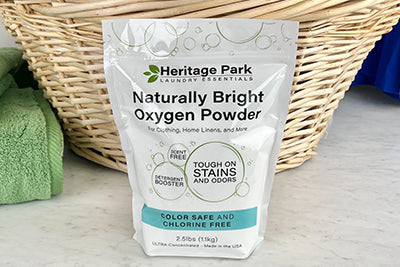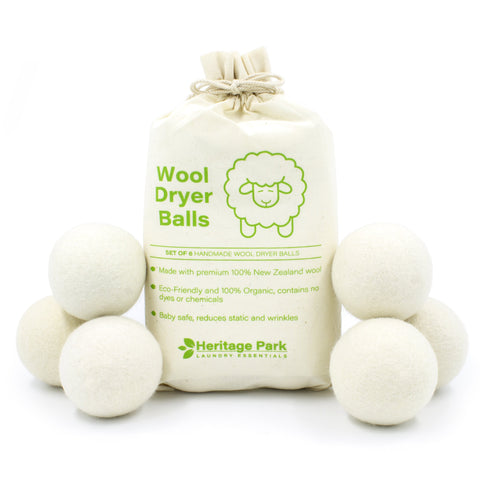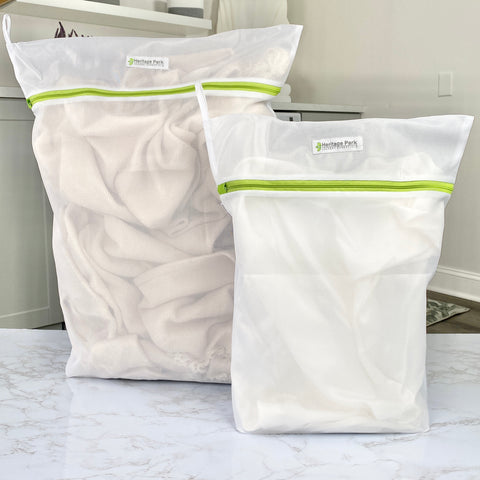As popular as they are, fabric softener and dryer sheets are really not good for fabric, your washer and dryer, your family, or the planet. This article takes a look at why you should avoid these products and what to use instead.
Inside this Article:
- Fabric Softener and Dryer Sheets: A Dirty Little Secret
- How Fabric Softeners and Dryer Sheets Work
- How fabric softeners work
- How anti-static sheets work
- Why You Shouldn’t Use Frabric Softeners or Dryer Sheets
- Learn How Fabric Softener and Dryer Sheets are Ruining Your Bath Towels, Athletic Apparel and Childrens Clothes
- Are fabric softener and dryer sheets making your towels less absorbent?
- Learn why dryer sheets and fabric softener are damaging your expensive athletic apparel
- Is fabric softener reducing flame-retardant properties of your baby and children’s sleepwear?
- Keep your high-quality home linens feeling good
- How Fabric Softener and Dryer Sheets Damage Machines
- Fabric Softener and Dryer Sheets: Health and Environmental Concerns
- What to Use Instead of Fabric Softener and Dryer Sheets: Wool Dryer Balls
- Pro Tip: How to Revive and Restore Softness to Tired Towels
Fabric Softener and Dryer Sheets: A Dirty Little Secret
Here at Heritage Park Laundry Essentials, we spend a huge amount of time doing laundry. It’s our favorite chore, our business and – as proud laundry nerds – our hobby. That means when we’re not actually doing laundry, we’re probably thinking about laundry. Or sharing everything we know to help make your laundry life easier.
Suffice it to say, we know our way around the laundry room. And today we’re going to tell you something that may surprise (or even shock) you: fabric softeners and dryer sheets are bad news. In fact, we recommend getting rid of these expensive, unnecessary, chemical-laden products immediately. We know: they smell good and (sort of) make your clothing, bath linen, and bedding softer. But trust us, fabric softener and dryer sheets aren’t doing you – or your laundry – any favors.
Read on while we break down the truth behind these popular products.
How Fabric Softeners and Dryer Sheets Work
Many of us have grown up in families that used fabric softener and dryer sheets as a matter of course. Introduced in the 1960’s and popularized in the following decades, these products are in conjunction with detergent to make laundry smell good, soften the fabric, and control static cling in the dryer. So, what’s not to love? As it turns out, a lot. The basic mechanism behind liquid fabric softener and conventional dryer sheets is the same; coating your laundry with fragrance and chemical softening agents that leave waxy deposits behind. No matter how good your laundry smells, or how soft it feels, absolutely nothing about these laundry products is natural.
How fabric softeners work
Fabric softeners are added during the wash cycle that deposit a layer of chemicals that fluff up, soften, and add fragrance to fabric while neutralizing electric charge. While most of these products are liquid softener, crystal fabric softener (sometimes called “laundry booster” or “scent booster”) has also become available in recent years.
How anti-static sheets work
A dryer sheet is a fibrous polyester sheet covered in softeners, lubricating stearic acids and fragrance. These compounds, especially the stearic acids, melt in the heat of the clothes dryer, leaving deposits on your clothes, towels, sheets, and inside the machine (more on that below).

Why You Shouldn’t Use Fabric Softeners or Dryer Sheets
Some of the most chemical-laden fabric softeners and dryer sheets contain a form of quaternary ammonium “quats” or oil-based (silicone) as well as dyes and fragrances. Rebecca Sutton a PhD and Senior Scientist with Environmental Working Group (EWG) explains what “quats” are and why they are not ideal for your skin or clothing.
“Fabric softeners and dryer sheets coat our clothes with a subtle layer of slimy chemicals - in fact, that's why they feel a little softer. The most common softening chemicals are called "quats" (short for quaternary ammonium compounds) and include such chemical mouthfuls as diethyl ester dimethyl ammonium chloride, dialkyl dimethyl ammonium methyl sulfate, dihydrogenated palmoylethyl hydroxyethylmonium methosulfate and di-(palm carboxyethyl) hydroxyethyl methyl ammonium methyl sulfate.
Of course, difficult pronunciation does not necessarily mean danger, but in this case it does clarify that we're talking chemicals here, not vague, wonderful softness (as the advertisers would like you to believe).”
You can read more about quaternary ammonium compounds here.
Learn How Fabric Softener and Dryer Sheets are Ruining Your Bath Towels, Athletic Apparel and Childrens Clothes
If you’ve ever used liquid fabric softener or crystals in the rinse cycle, or taken your clothes out of the dryer after using a dryer sheet, you know that these products make your clothes smell and feel good and help control static. But that temporary convenience comes at a cost: damaged fabric. These products work by coating your laundry with a chemical film that, over time, builds up and harms the structural integrity of your clothing and linen.
Are fabric softener and dryer sheets making your towels less absorbent?
Yes, using fabric softener and/or dryer sheets causes a waxy build-up on your cotton towels. This makes them less absorbent and, over time, attracts a buildup (see below for guidance on how to restore and revive dingy, smelly towels). Microfiber towels are particularly susceptible to damage from fabric softener and dryer sheets, as they are made to trap microscopic particles and absorb spills.
Learn why dryer sheets and fabric softener are damaging your expensive athletic apparel
Your high-tech athletic gear is made to wick sweat. By using a dry sheet or fabric softener when laundering it is adding a layer of film on your workout clothes and inhibit the apparels essential function.
Is fabric softener reducing flame-retardant properties of your baby and children’s sleepwear?
Under federal law, children’s pajamas and sleep garments must be flame retardant and self-extinguishing. By using fabric softener on a regular basis it is reducing the flame-retardant properties of the fabric (and can also irritate skin as discussed below).
Keep your high-quality home linens feeling good
There is no need to add extra chemicals to soften or scent sheets, bed linen, or table linen. These items should be laundered carefully with a gentle, pH-neutral laundry detergent made without harmful chemicals like Heritage Park All-Purpose Detergent. Check out our guidelines for washing fine sheets and bed linens here.
How Fabric Softener and Dryer Sheets Damage Machines
With the average household washing more than seven loads of laundry a week, we ask a lot of our washers and dryers. However, with regular cleaning and maintenance, these machines should serve us well for many years (check out our blog on how to clean and freshen up your front-load washing machine here). Unfortunately, fabric softener and – particularly – dryer sheets are not good for your machines. As we noted before, these products work by leaving behind a waxy coating. In the washing machine, most fabric softener residue should diminish in the rinse cycle. The dryer, however, is another story. Dryer sheets work by melting in the heat of the dryer, and leave a waxy coating on the interior of the drum. Unfortunately, this same residue builds up on your lint filter and clogs the screen, which can impair air circulation in the dryer vent and cause the dryer to run too hot.
Fabric Softener and Dryer Sheets: Health and Environmental Concerns
One of the most common issues that occur with fabric softener and dryer sheets is skin irritation. Even individuals without known skin conditions or sensitive skin can develop contact dermatitis as a reaction to the chemicals, fragrances, and dyes in fabric softeners and dryer sheets. Additionally, it may take time to figure out specifically what is causing the skin irritation, particularly for babies and young children. Some highly sensitive people also develop inhalation allergies to dryer sheets, resulting in symptoms like sore throat, runny nose, and even asthma in more serious cases.
Fabric softener and dryer sheets are also not good for the planet. Not only are they laden with chemicals that are introduced into our air and water, they create waste with their plastic bottles and used sheets that sit in landfills.

What to Use Instead of Fabric Softener and Dryer Sheets: Wool Dryer Balls
If you’re committed to healthy cleaning and care what comes in contact with your fabric, skin, and washing machine/dryer, it’s definitely time to ditch your dryer sheets and fabric softener. But that doesn’t mean putting up with scratchy laundry and static cling. Wool dryer balls are a wonderful alternative that deliver amazing benefits to you and your laundry:
- Naturally soften and fluff laundry
- Minimize static and reduce trying time
- Made from natural, biodegradable wool
- Can be reused for several months
Wool dryer balls are also easy to use. Just toss them in the dryer and let them work their magic. And, if you want to add a bit of fragrance to your laundry, just put a drop or two of your favorite essential oil on a dryer ball and toss it in with your laundry for a chemical-free, non-toxic scent.
Pro Tip: How to Revive and Restore Softness to Tired Towels
Earlier in this blog we mentioned that many folks mistakenly add fabric softener or dryer sheets when washing bath towels in the hope it will make them fluffier and softer, when in fact it does the reverse by causing waxy buildup on the fabric. Using too much detergent, hard water, and regular mold and mildew on wet laundry can also make towels scratchy and smelly. Fortunately, you can restore fluffiness, softness and absorbency to your bath towels without harsh chemicals in three simple steps with two products you probably have in your pantry, baking soda and white vinegar.
- Wash your towels in warm water or hot water -- not scalding -- with one cup of white distilled vinegar. This will strip towels of any built-up residue and help restore absorbency. DON'T USE DETERGENT, only white vinegar.
- Run the load a second time using only a half-cup of baking soda. This will help freshen and remove any lingering smells. AGAIN, DON'T USE DETERGENT, only baking soda.
- Dry according to instructions WITHOUT fabric softener sheets.
You can repeat this process whenever you want fresh, soft towels. Read more about keeping towels fluffy and soft here.
Of course, the Heritage Park “Clean Team” is always here to answer your questions about all things laundry related. Give us a call or drop an email at any time. We are here to help!


